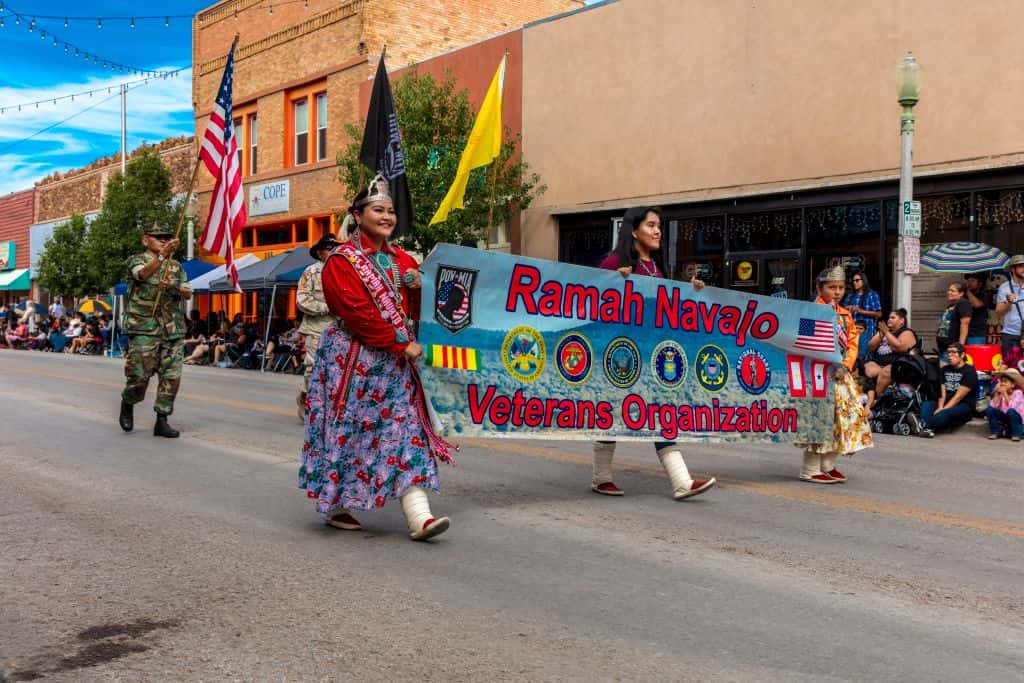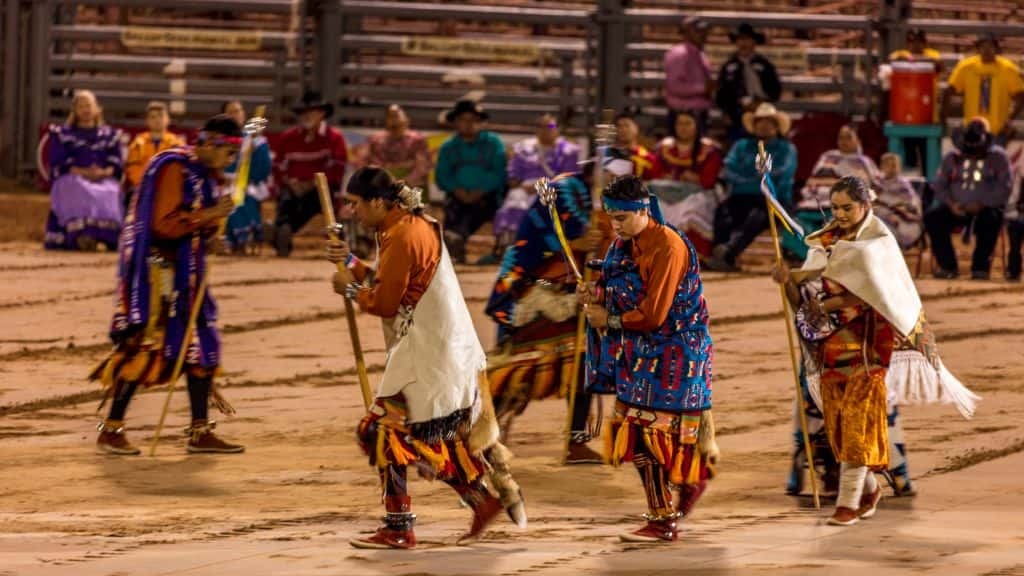Independence Day: Do Native Americans really celebrate July 4 or is it lost tradition that forced them to evolve?

For Native Americans, the United States' Independence Day, ie., the Fourth of July, is one filled with reminders of a painful past. When European settlers reached the continent, it resulted in centuries of ill-treatment as white settlers continued to drive Native Americans from their homes -- President Andrew Jackson's 1830 Indian Removal Act being an example -- and as many died of starvation and disease, their cultural freedoms were taken away.
In July 1776, the Continental Congress adopted the Declaration of Independence and 13 colonies became the United States of America -- an event that is celebrated across the country with pomp and vigor today on the Fourth of July. But the harsh reality is that the country was founded on the unjust treatment of Native Americans, Africans and, and other people of color. The land was colonized by the Europeans who used a Doctrine of Discovery to dehumanize, steal from, enslave and even commit cultural genocide against the indigenous people of both the "New World" and Africa.
Even after the establishment of the United States of America, the country continued to mistreat Native Americans. In 1883, the Secretary of the Interior, Henry Teller developed what came to be known as the Religious Crimes Code -- regulations at the heart of the Department of Interior, Office of Indian Affairs, Code of Indian Offenses that prohibited American Indian ceremonial life.
Teller's guidelines were that all Native communities were to end tribal dances and feasts. According to the National Museum of the American Indian (NMAI), these guidelines were enforced on reservations and banned Indian ceremonies, disrupted religious practices and destroyed or confiscated sacred objects. Agents often outlawed Indian religious ceremonies like the Sun Dance. They discouraged give-away ceremonies, a traditional practice of honoring the Creator by giving away food, blankets, horses, and other forms of wealth. If people performed their traditional practices or religious rituals, they could lose their food rations or be arrested. They also were not allowed to leave their reservations without a pass.

The Code of Regulations were issued in 1884, 1894, and 1904 through the Indian Affairs Commissioner's circulars and Indian agent directives. Indian superintendents and agents implemented the code until the mid-1930s. During this 50-year period, Indian spiritual ceremonies such as the Sun Dance and Ghost Dance were held in secret or ceased to exist. Some have since been revived or reintroduced by Indian tribes.
However, Native Americans saw an opportunity in the Fourth of July celebrations to continue their own ceremonies without needing written permissions from the Indian Bureau. Native Americans began to use the Fourth of July as an excuse to gather and perform the dances and ceremonies they considered important. Indian agents allowed reservations to conduct ceremonies as a way for Native Americans to "learn patriotism: to the country and to celebrate its ideals."
Some tribes had a practice of giving away assets during celebrations, often through a formal ceremony called a potlatch. Native Americans considered it an honor to give their possessions to others and often gave to the poorest members of the tribe, first. Sioux Indians apparently ramped up this gift-giving practice on the Fourth of July, and the Indian Bureau began calling this “Give-Away Day.” Tribal members celebrated the Fourth with games of skill and strength, feasting, and dancing. They also incorporated their practice of honoring individuals with important gifts, with no thought of reciprocation. Gifts were substantial–horses, fancy beadwork, saddles, and other valuable items.

This history explains why there is a disproportionate number of Native American tribal gatherings on or near the country's independence day and are often the social highlights of the year, reports a blog by the National Museum of the American Indian. These cultural ceremonies became tribal homecoming over time and Native American veterans, in particular, were welcomed home as modern-day followers of warrior traditions, like the Navajo Tribe of Arizona and Pawnee of Oklahoma. More than 12,000 American Indians served during World War I, and after the war, the American flag began to be given a prominent position at American Indian gatherings, especially those held on the Fourth of July -- before the Reservation Era, the American flag represented conflict, death, and destruction.
The Lumbee of North Carolina and Mattaponi of Virginia use this time as a homecoming for tribal members to renew cultural and family ties. The Kiowa Tribe of Oklahoma holds Gourd Clan ceremonies on Independence Day because the holiday coincides with their Sun Dance, which once took place during the hottest part of the year. The Lakota of South Dakota and Cheyenne of Oklahoma continue to have some of their annual Sun Dances on the weekends closest to the Fourth of July to coincide with the celebration of their New Year. Some Native Americans do not celebrate the Fourth of July because of the negative consequences to indigenous people throughout history, while others simply get together with family and have cookouts, like many non-Native American citizens.










